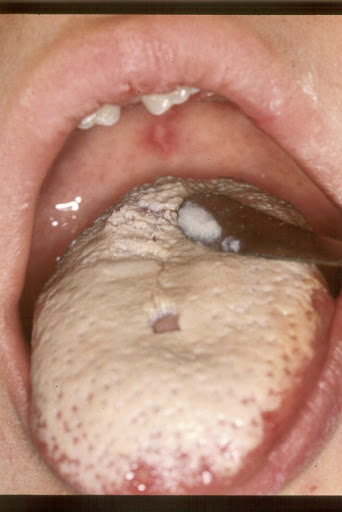Candidiasis, or male thrush, is an infection which is caused by the overgrowth of a species of fungi known as candida. Everyone has a small amount of candida in their body and it usually causes no harm. This species of fungi is kept in check by the immune system and harmless forms of bacteria. However, if you take certain medications, such as antibiotics, suffer from chronic stress or regularly wear tight-fitting clothes, the harmless bacteria can be destroyed and the levels of candida in your body will thrive. This is can also occur if you are feeling run down or have a weak immune system.

Candida requires a warm, moist environment in which to live, which is why it occurs most frequently on genitals and in the mouth. This means that personal hygiene is essential. Also, to help prevent candidiasis, you should ensure you dry your penis carefully following washing. Failure to do so can result in the development of thrush due to the moist conditions. It is advisable to refrain from using perfumed personal hygiene products, such as shower gels and soaps, as these products can cause irritation of the penis and increase your likelihood of developing thrush. You should also keep any damaged skin clean and dry as candida thrives on damaged skin.
If you have been diagnosed with a condition that weakens your immune system, such as HIV and other autoimmune diseases, you will find that your risk of developing candidiasis is higher than average. Also, if you have been diagnosed with diabetes, your risk of thrush will be increased. In fact, recurrent thrush can be a symptom of undiagnosed diabetes. If you experience excessive thirst, have lost weight, and feel the need to pass urine frequently, you must consult with your GP as you may have diabetes.
The candida fungus can be passed on through sexual activity. However, the infection is not considered to be a sexually transmitted infection as you can develop thrush at any time, even if you have never engaged in sexual activity. As it is possible for people with thrush to infect their sexual partners, it is essential that relevant precautions are taken to prevent the spread of the infection. If you have been diagnosed with thrush, you should avoid engaging in sexual activity until the infection has resolved itself. You could spread thrush or make thrush worse through having sex. If you do choose to have sex while infected with candida, you must use a condom to prevent your partner from developing thrush. You can also transmit thrush through sexual activity without experiencing any of the symptoms of thrush yourself.
Homosexual men are just as likely to develop thrush as heterosexual men. However, if you are heterosexual, you can develop balanitis (inflammation of the head of your penis) following having sexual intercourse. Balanitis can be caused by an allergy to the candida which normally lives in your partner’s vaginal tract. However, it will usually resolve itself when your partner seeks treatment for thrush.
For more information on candidiasis, and help if you think you may be suffering from it, please contact your GP.
Written by Kat Kreatzer, an experienced blogger working in the health-care industry for many years.
The Causes Of Candidiasis

